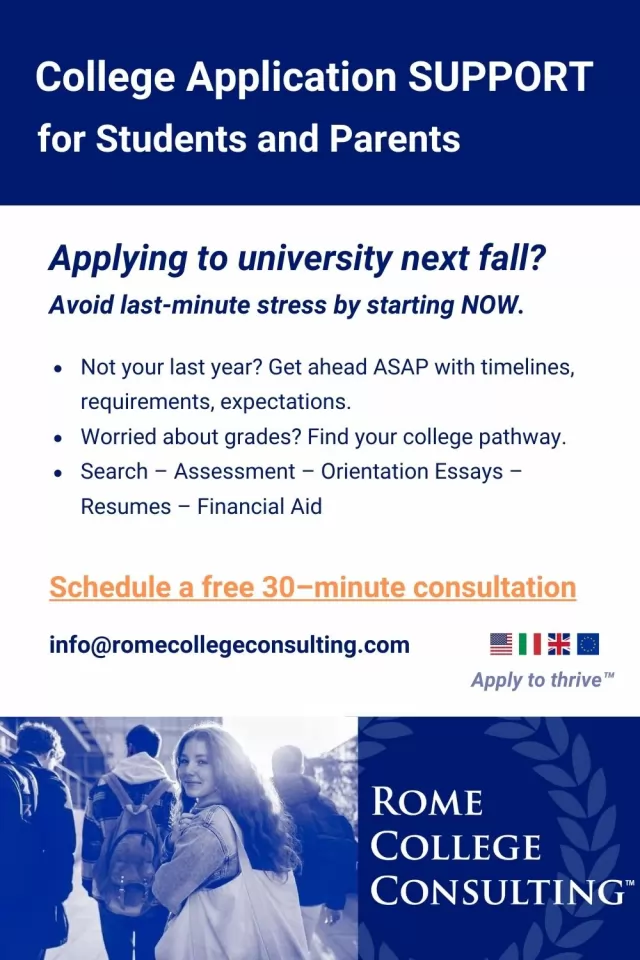A guide on how to rent an apartment in Italy
A guide outlining the various types of Italian rental contracts, the legal rights of tenants, and the documents required to rent accommodation in Italy.
“Law benefits and protects Landlords over Tenants, Creditors over Debtors, Lenders over Borrowers. The poor are seldom among the favoured parties” – John Turner.
This quote holds true pretty much everywhere in the world but it is also important to understand the differences in renting practices in Italy during and at the termination of a rental contract to avoid being faced with unexpected expenses.
In Italy there are generally two types of residential contracts, the first being free market contracts (contratto di libero mercato). These are based on an agreement made between the owner (locatore) and the tenant (conduttore). The contract lasts for four years, with an automatic renewal of a further four years (often called 4+4). The second type is mutually agreed contracts (contratti concertati); these are more flexible contractual forms for particular situations and groups of persons.
This type of contract allows for: residential (uso abitativo) with a duration of 3+2 years which can usually be increased to 4+2 and even beyond; transitory (uso transitorio) which has a duration of 1 to 18 months, and cannot be renewed, and is applicable usually to particular situations such as the need for the tenant to have the apartment available for a short period, for example a temporary work contract; student rentals (uso studenti universitari) with a duration of between six and 36 months. This can be used in municipalities where there is a university and in their neighbouring municipalities.
Rental agreements in Italy differ quite a lot from those in most Anglo-American countries, where a lessee is normally responsible for paying a fixed rental, water and energy bills and the owner/lessor is responsible for maintenance of the property and any municipal and condominium levies. In Italy the lessees do not just pay rent but take on more of the financial obligations for the property they are renting. Here are some of the additions to look out for before entering into a rental contract.
First and foremost always ask for proof of ownership (visura catastale – property deed) to ensure that the person you are paying the rental to is the bona fide owner and not a family member or a factotum renting out the property without the owner’s knowledge, which could lead to your contract being annulled and leave you looking for other accommodation. The costs pertaining to the registration of the contract should be borne in equal parts by the lessee and owner/lessor.
With regard to the rent (canone), if you are asked to pay a deposit as a guarantee to the owner, always request a separate receipt as at the termination of the contract you are entitled to your deposit plus bank interest for the period it was retained. It is also advisable to include payment dates and method, i.e. bank transfer, cheque or cash. If paying in cash always demand an official receipt in order to comply with Italian tax laws. Also check to see if the owner has included an ISTAT (consumer authority) clause in the contract. ISTAT is the national statistics authority that calculates the value of price increases every year; the owner of a property may increase the rent each year according to this percentage value.
Over and above water and energy bills you will be responsible for all service charges pertaining to the property such as central heating, lift maintenance, stair cleaning, ordinary maintenance of the courtyard and garden, cold water from central systems, and any costs for the administration of the apartment building and waste tax. To establish the actual amount of the service charges it is advisable to ask the owner or estate agent for a copy of the previous year’s balance sheets, complete with a division of the costs, of which each apartment in a condominium pays a share, based on the size and value of the apartment, usually expressed in millesimi (thousandths of the total).
Terms governing the maintenance of the property differ greatly in Italy. Repairs to the sanitary fittings, electrical system, plumbing, gas and hot water systems are your responsibility, including an annual emissions check on the boiler (caldaia). The repair of any drains and piping and the periodical maintenance of internal and external doors and windows (infissi) are also usually required.
On expiry of the contract the property must be returned to the owner in the same condition, without prejudice to normal wear and tear. In order to protect yourself it is advisable to take photographs of the interior of the property before taking up occupation and give copies to the agent or owner for reference. Also check the painting clause in the contract, as many owners hold the tenant responsible for repainting the interior of the property at the end of the lease. If this is included, specify that prior to painting you will either select the contractor to carry out the work or that you have the right to approve a quote by the owner to prevent extravagant costs.
Check to make sure there is an early termination clause in the contract, which gives the lessee the possibility to terminate the contract in advance, considering that most contracts are binding for four years. But then also keep in mind that it is usually provided for by a six-month notice period and written notice must be sent by registered letter with confirmation of receipt (raccomandata a/r). If you have to transfer for work, it would be prudent to ask your employer to grant you the same notice period, or you could find yourself paying a double rental for a six-month period.
For all matters not specifically covered in the contract, request that it should include a clause with reference to the Italian Civil Code and Italian law no. 431 of 1998. In this way you are covered by the law in the event of any other unexpected requests.
The lessor cannot terminate the contract early for family reasons. The lessor may only terminate the contract for the following reasons: if the tenant infringes the rules laid down by a condominium; if the tenant wilfully damages the property; repetitive non-payment of rental, condominium fees or services.
The items we have covered are by no means exhaustive of all the issues in a rental contract but rather those that differ most from other countries, so it is advisable to get the contract translated into English so that you can go through it with a fine-tooth comb to make sure you are happy with it before signing it and buying a “Home sweet home” sign.
Studio Legale Annino. This article was published originally in the June 2013 edition of Wanted in Rome magazine.


















